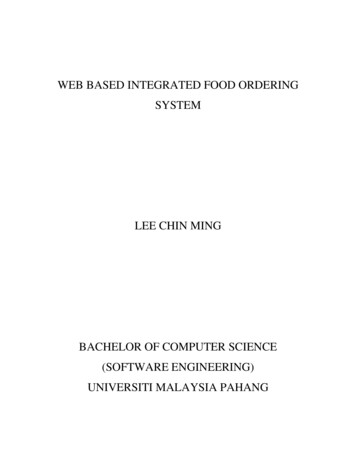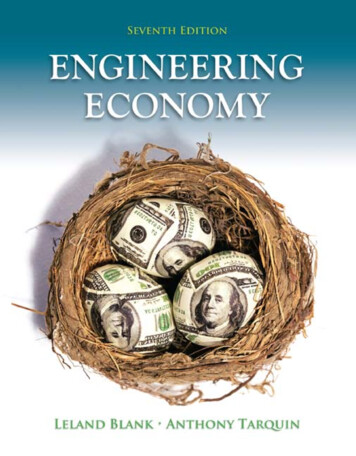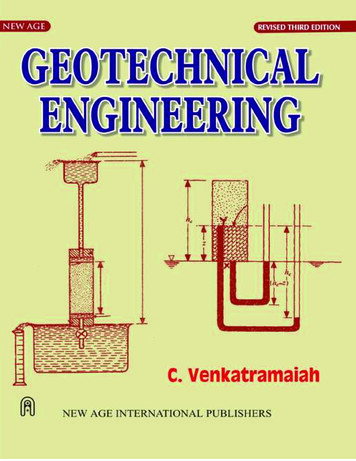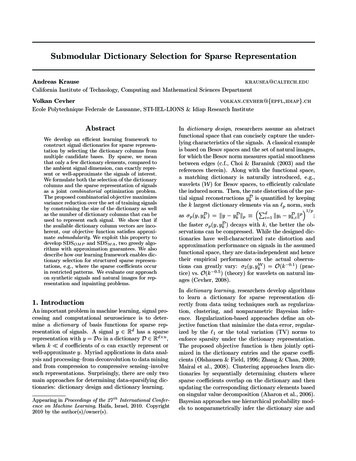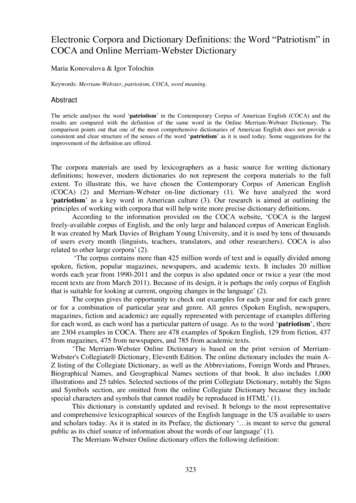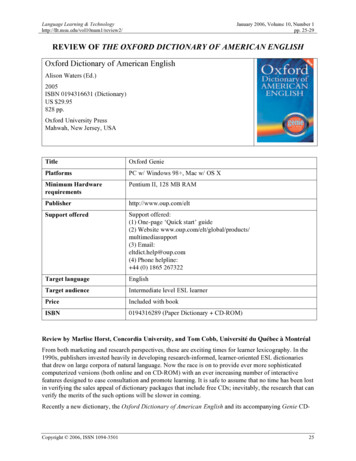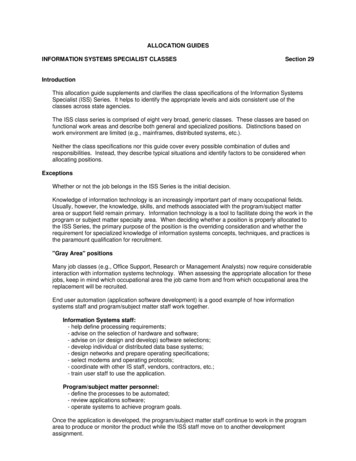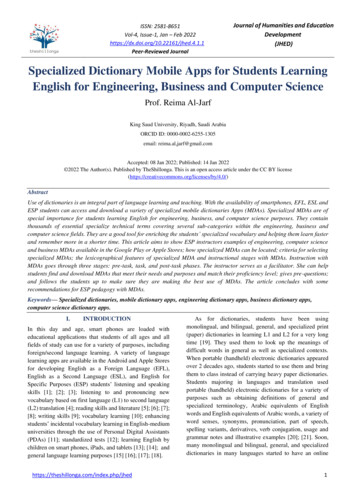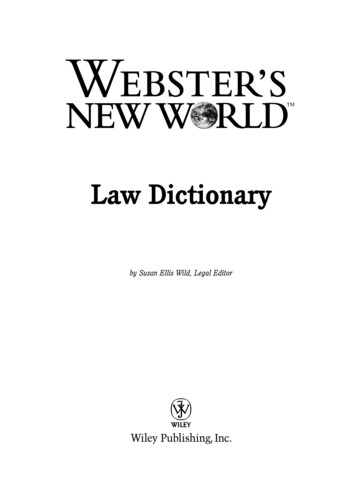
Transcription
01 542109 ffirs.qxp3/28/0612:15 PMPage iiiTMLaw Dictionaryby Susan Ellis Wild, Legal Editor
01 542109 ffirs.qxp3/28/0612:15 PMPage ii
01 542109 ffirs.qxp3/28/0612:15 PMPage iTMLaw Dictionary
01 542109 ffirs.qxp3/28/0612:15 PMPage ii
01 542109 ffirs.qxp3/28/0612:15 PMPage iiiTMLaw Dictionaryby Susan Ellis Wild, Legal Editor
01 542109 ffirs.qxp3/28/0612:15 PMPage ivWebster’s New World Law DictionaryCopyright 2006 by Wiley, Hoboken, NJPublished by Wiley, Hoboken, NJPublished simultaneously in CanadaNo part of this publication may be reproduced, stored in a retrieval system, or transmitted in any formor by any means, electronic, mechanical, photocopying, recording, scanning, or otherwise, except aspermitted under Sections 107 or 108 of the 1976 United States Copyright Act, without either the priorwritten permission of the Publisher, or authorization through payment of the appropriate per-copy feeto the Copyright Clearance Center, 222 Rosewood Drive, Danvers, MA 01923, 978-750-8400, fax978-646-8600, or on the web at www.copyright.com. Requests to the Publisher for permission shouldbe addressed to the Legal Department, Wiley Publishing, Inc., 10475 Crosspoint Blvd., Indianapolis,IN 46256, 317-572-3447, fax 317-572-4355, or online at http://www.wiley.com/go/permissions.The publisher and the author make no representations or warranties with respect to the accuracy orcompleteness of the contents of this work and specifically disclaim all warranties, including withoutlimitation warranties of fitness for a particular purpose. No warranty may be created or extended bysales or promotional materials. The advice and strategies contained herein may not be suitable forevery situation. This work is sold with the understanding that the publisher is not engaged in rendering legal, accounting, or other professional services. If professional assistance is required, the services of a competent professional person should be sought. Neither the publisher nor the author shallbe liable for damages arising herefrom. The fact that an organization or Website is referred to in thiswork as a citation and/or a potential source of further information does not mean that the author orthe publisher endorses the information the organization or Website may provide or recommendationsit may make. Further, readers should be aware that Internet Websites listed in this work may havechanged or disappeared between when this work was written and when it is read.Trademarks: Wiley, the Wiley Publishing logo, Webster’s New World, the Webster’s New World logo,and all related trademarks, logos, and trade dress are trademarks or registered trademarks of JohnWiley & Sons, Inc. and/or its affiliates. All other trademarks are the property of their respective owners. Wiley Publishing, Inc. is not associated with any product or vendor mentioned in this book.For general information on our other products and services or to obtain technical support, please contact our Customer Care Department within the U.S. at 800-762-2974, outside the U.S. at 317-572-3993,or fax 317-572-4002.Wiley also publishes its books in a variety of electronic formats. Some content that appears in printmay not be available in electronic books. For more information about Wiley products, please visit ourweb site at www.wiley.com.Library of Congress Cataloging-in-Publication data is available from the publisher upon request.ISBN-13 978-0-7645-4210-7ISBN-10 0-7645-4210-9Manufactured in the United States of America10 9 8 7 6 5 4 3 2 1
01 542109 ffirs.qxp3/28/0612:15 PMPage vDedicationTo my mother, an original Webster, who gave me my love of words.
01 542109 ffirs.qxp3/28/0612:15 PMPage vi
01 542109 ffirs.qxp3/28/0612:15 PMPage viiAbout the AuthorSusan Ellis Wild has been a practicing lawyer since 1982, and currently is a fulltimelitigator in Allentown, Pennsylvania. She is President of the 600 member BarAssociation of Lehigh County, Pennsylvania. Susan has litigated more than 100 casesand frequently writes and speaks to audiences about law-related topics. She has beenappointed by courts on numerous occasions to act as an independent arbitrator/mediator of cases. Susan is admitted to the Bars of Pennsylvania, the District of Columbia,and Maryland, and has appeared in courts in a number of other states.
01 542109 ffirs.qxp3/28/0612:15 PMPage viii
02 542109 ftoc.qxp3/28/0612:15 PMPage ixTable of ContentsPart I: Dictionary. . . . . . . . . . . . . . . . . . . . . . . . . . . . . . . . . . . . . 1Part II: Appendices . . . . . . . . . . . . . . . . . . . . . . . . . . . . . . . . . 281Abbreviations . . . . . . . . . . . . . . . . . . . . . . . . . . . . . . . . . . . . 283Foreign Words and Phrases . . . . . . . . . . . . . . . . . . . . . . . . . 291The Constitution of the United States . . . . . . . . . . . . . . . . . 303
02 542109 ftoc.qxp3/28/0612:15 PMPage x
03 542109 pt01.qxp3/28/0612:16 PMPage 1Part IDICTIONARY
03 542109 pt01.qxp3/28/0612:16 PMPage 2
04 542109 ch01.qxp3/28/0612:16 PMPage 3Athe combined value of all bequests anddevises, and/or the debts owed by a testator, exceed the assets in the testator’sestate. 4 n. The rebate or reduction oftaxes already assessed and/or paid.abatement n. 1 The act of abating.2 The process of, or the state of, beingabated. 3 The amount abated.AAA abbr. See American ArbitrationAssociation.AALS abbr. See AssociationAmerican Law Schools.ABA abbr.Association.SeeAmericanofBarabandon v. 1 To intentionally give upfor all time an assertion or a claim of aninterest in property or in a right or privilege. 2 To repudiate, withdraw from,or otherwise disassociate oneself from aduty or responsibility. 3 To intentionally fail to complete.abandoned propertySee property.abandonee n. A person or party towhom property or a right has been abandoned or relinquished.abandonment n. 1 The act of abandoning property or a right with no intentof reclaiming it or of later giving it awayor selling it. See also forfeiture, relinquishment, renunciation, surrender,and waiver. 2 The act of abandoning aperson with the intent of terminating theduties or him or her. For example, theintentional failure by a parent to communicate with or to provide financial orother support to his children. See alsodesertion.abate 1 v. To end, eliminate, do awaywith, or make null and void. 2 v. Todiminish, decrease, or lessen in degreeor amount. 3 n. The reduction of abequest or devise made in a will becauseabatement clause n. A contractualprovision releasing the tenant of a leasefrom the obligation to pay rent when anact of God prevents the occupancy of thepremises.abator n. A person who diminishes oreliminates a nuisance.ABC test n. A rule of law that allowsemployers not to provide unemploymentcompensation to independent contractors. The test for whether an individualis an independent contractor as opposedto an employee is threefold: 1) does theindividual work independently of theemployer’s control (A alone); 2) doesthe individual maintain his own place ofbusiness (B business); and 3) does theindividual practice or work at an established trade, and exercise control overhis own schedule and method of operation (C control)? The name derivesfrom the letters normally used to designate the three parts of the test. Seecontractor.abdication n. The act of a person orbranch of government renouncing orabandoning an office, trust, sovereignty,privileges, or duties to which he or sheis entitled, holds, or possesses by law.abduct v. 1 To carry or lead a personaway from where he wants to be orwants to go by use of force, threats, ordeception. 2 To restrain or conceal aperson in order to prevent his escape orrescue. See also kidnapping.abet v. To actively, knowingly, and/orintentionally aid, encourage, incite,instigate, or otherwise support the commission of an act.
04 542109 ch01.qxp3/28/0612:16 PMPage 4abeyance4abeyance n. 1 An indefinite or temporary state of inactivity or suspension.2 An incomplete or undetermined stateof existence. 3 The status of real property or of a position or title when itsownership or occupancy is not vested inany existing person or party.abortion n. 1 The premature termination of a pregnancy. 2 The intentionaland artificial termination of a pregnancythat destroys an embryo or fetus. 3 Thespontaneous expulsion of an embryo orfetus before it is capable of living outsidethe womb.abide v. 1 To await. 2 To accept orsubmit to. 3 To tolerate or withstand.4 To adhere, execute, obey, perform, orotherwise act in conformity with. 5 Todwell, remain, reside, or stay.above adv. 1 Previously in the samechapter, document, or text. For example,a reference to a court case cited earlierin the same document. 2 Having thepower to review the decisions regardingquestions of fact and/or law made in acourt. For example, appellate courts,such as the United States SupremeCourt, are above, or can review, the decisions made by one or more trial courts.See jurisdiction, question of fact, andquestion of law.abiding adj. Certain; indestructible;permanent; steadfast; unaltering; unfaltering; unshakeable.ab initio adv. Latin. From the first act.From the beginning; back to one’s creation or inception.abnormally dangerous activity n. Anundertaking so dangerous that, even ifprecautions and reasonable care areused, it cannot be safely performed andanyone who engages in it is strictlyliable for any resulting injuries and damage, especially if 1) there is a risk ofserious harm to people or property,2) the activity cannot be performed insome other way that avoids those risks,and 3) the undertaking does not normally occur at the location where it is totake place. See also liability.abode 1 n. A dwelling, home, or otherfixed place where a person resides.2 v. Past tense and past participle ofabide.abolish v. To abrogate, annul, cancel,eliminate, put an end to, recall, repeal,or revoke, especially things of a seemingly permanent nature, such as customs, institutions, and usages.abolition n. 1 The act of abolishing.2 The legal abolition and prohibition ofslavery. 3 The abolition of slavery inthe United States by the ThirteenthAmendment to the United StatesConstitution.abridge v. 1 To diminish, lessen, orrestrict a legal right. 2 To condense orshorten the whole of something, such asa book, and not merely a portion of it.abrogate v. 1 To annul, cancel,destroy, overturn, repeal, revoke, setaside, supercede, or otherwise do awaywith or put an end to. 2 To abolish acustom or law by some authoritative,formal, legislative, or other legally effective method.abscond v. 1 To secretly or suddenlyleave a place or to go into hiding, especially to avoid arrest, prosecution, theservice of a summons or other legalprocess, or an action by a creditor. 2 Toleave a location, often in a hurry, withmoney or property of another.absent without leave n. The act ofbeing away from one’s military duties orpost without permission but with nointent of deserting. Abbreviated asAWOL. See also desertion.absentee n. A person who is not wherehe or she would normally be found, suchas a place of residence or work.
04 542109 ch01.qxp3/28/0612:16 PMPage 55abstentionabsentee landlord n. A landlord whoresides so far from the leased realproperty that his is not, or is notexpected to be, readily available to personally address any problems concerning the property.absentee votingabsentiaSee voting.See in absentia.absolute n. 1 Without any conditions,encumbrance, qualification, or restriction. See also discretion, divorce,immunity, privilege, and fee. 2 Notliable or subject to revisions; conclusive.3 Free from any restraint or restrictionin the exercise of government power.absolute lawSee natural law.absolute liabilitySee strict liability.absolve v. 1 To forgive misconduct.2 To free from guilt or suspicion; forexample, when evidence proves that asuspect is innocent of a crime. 3 Tofree from the penalties imposed as aresult of misconduct. 4 To free from adebt, duty, obligation, or responsibility.abstention n. 1 The act of voluntarilyrefraining from taking some action,such as casting a vote or participatingin a decision or deliberation. 2 A federal court’s act of declining to exerciseits jurisdiction while awaiting or deferring to a decision by a state court. Indoing so, the federal court retains jurisdiction of the legal issues at hand andmay decide those issues if the plaintiffis not satisfied with the state court’sdecision. See also comity and relinquishment. Several rationales for a federal court’s abstention are named forthe United States Supreme Court decision in which the rationale was firstapplied. These include:Burford abstention. The refusal of afederal court to consider a challengeto a state’s administrative regulations and proceedings or to review astate court’s decision involvingthose regulations and proceedingswhen they involve a substantial orsensitive area of state concern.Burford v. Sun Oil Co. (1943).Colorado River abstention. A federalcourt’s act of declining to exerciseits jurisdiction when there is underway a state court proceeding involving the same parties and questions.Colorado River Water ConservationDist. v. United States (1976).Pullman abstention. A federal court’sdecision to await the interpretationof a state law by that state’s courtbefore deciding a federal constitutional question that is dependantupon how that law is interpreted.Railroad Commission of Texas v.Pullman Co. (1941).Rooker–Feldman abstention. A federal court’s declining to considerthe argument that a state courtjudge violates a party’s federalrights for the reason that the propervenue to challenge that judge isthat state’s court system. Rooker v.Fidelity Trust Co. (1923) and Districtof Columbia Court of Appeals v.Feldman (1983).Thibodaux abstention. A federalcourt’s act of declining to exerciseits jurisdiction to allow a state courtto decide difficult issues if importance in order to avoid unnecessaryfriction between federal and stateauthorities. Louisiana Power & LightCo. v. City of Thibodaux (1959).Younger abstention. 1 A federalcourt’s decision to halt or interferewith a state court’s criminal proceeding unless the prosecution hasbeen brought in bad faith or harassment. 2 A federal court’s decisionto halt or interfere with a statecourt proceeding on the groundsthat the arguments of the partyseeking the federal courts involvement can be raised and fairly deter-
04 542109 ch01.qxp3/28/0612:16 PMPage 6abstractmined in the state court. Younger v.Harris (1971).abstract n. A concise summary of atext. See also abstract of judgment,abstract of record, and abstract of title.abstract of judgment n. A copy orsummary of a court’s judgment. When itis filed with the appropriate authorities,a lien is created on the judgmentdebtor’s nonexempt property in favor ofthe judgment creditor.abstract of record n. A summary ofthe record of a case advising an appellate court of the underlying facts, all thesteps taken to-date in the case, the decision of the trial court, and the legalissues to be decided.abstract of title n. A short history orsummary of the ownership of a parcel ofland. The abstract includes a list of allconveyances, transfers, and other evidence of title; all grants, conveyances,wills, records, and judicial proceedingsthat may affect title; and a list of encumbrances and liens of record on the land,along with a statement whether theencumbrances and liens still exist. Acompany whose business is to obtainsuch information from public recordsusually does such an abstract for themortgagee or buyer of real property inconnection with a proposed sale of land.See also chain of title.abstraction n. 1 The act of separating, taking away, or withdrawing. 2The act of taking with the intent toinjure or defraud. 3 The unauthorizedtaking of financial statements or fundswith the intent of misappropriatingthem.abuse 1 v. To mistreat or neglect aperson, particularly as to one for whomthe actor has special responsibility byvirtue of a relationship, e.g., spouse,child, elderly parent, or one for whomthe actor has undertaken a duty of care,6e.g., nurse-patient; 2 v. to use an objectin an illegal or unreasonable manner.3 n. The mental or physical mistreatment of a person, frequently resulting inserious emotional, mental, physical,and/or sexual injury.child abuse. 1 The intentional orneglectful abuse, which includessexual mistreatment, inflicted on achild. 2 A parent or caregiver’sintentional or neglectful act or failure to act that results in a child’sabuse, exploitation, or death. 3An act or failure to act that resultsin a possibility of immediate andserious harm to a child. See alsobattered person syndrome andchild neglect.elder abuse. The abuse of an elderlyperson by his or her child or caregiver, that may include battery, verbal abuse, isolation, and the denialor deprivation of food.sexual abuse. 1 An illegal sexualact. 2 Unlawful sexual activity orcontact with a person without herconsent. The activity or contact isusually imposed by the use of forceor threats of violence. The application of the term varies, but it is usually applied to activities or contactthat do not amount to rape, butsometimes the term includes rape.Also called carnal abuse and sexabuse.spousal abuse. The abuse inflicted ona person by his or her spouse. Seealso battered person syndrome andcruelty.abuse excuse n. A courtroom tacticwhereby a criminal defendant claimsthat mental or physical abuse eitherexplains the defendant’s conduct, especially in cases involving violence againstthe alleged abuser, or makes the defendant incapable of telling right fromwrong. The phrase is almost exclusivelyused as a term of derision by thoseunsympathetic to such claims.
04 542109 ch01.qxp3/28/0612:16 PMPage 77abuse of discretion n. A trial court oradministrative agency’s ruling on a matter within its discretion that, in light ofthe relevant facts and law, is arbitrary,capricious, unconscionable, unfair,unreasonable, or illegal. An appellatecourt will not reverse a ruling that waswithin the discretion of the trial court oradministrative agency merely becausethe appellate court would have reacheda different decision. Instead, the trialcourt or administrative agency’s decision must be wholly inconsistent withthe facts and the law and with any reasonable deductions that can be madetherefrom.abuse of process n. The tort of beginning or otherwise using the judicial civilor criminal process for an improper purpose. There may be a legitimate basisfor instituting or using the judicialprocess, but the actual intent behind theaction is improper. See also maliciousprosecution.abut v. To adjoin; to border on; tocease at the point of contact; to connector join at a border; to share a commonborder with.abuttal n. The border of a parcel ofland in relation to adjoining lands.academic freedom n. 1 The right of ateacher or student, especially at the college or university level, to discuss orinvestigate any issue, or to express opinions, on any topic without interferenceor fear of penalty or other reprisal fromeither the school or the government. 2A school’s freedom to control its ownpolicies without government interference, penalty, or reprisal. The extent towhich academic freedom exists dependson many facts, including whether theschool is a private or public institutionand whether it is a primary or secondaryschool or a college or university.acceleration n. 1 The shortening ofthe time, or the immediate creation oraccessionvesting, of a legal duty, interest, or rightthat was to arise or vest in the future.See also acceleration clause. 2 Thehastening of a real property owner’senjoyment, or the vesting, of his remainder interest in an estate because of thefailure or premature termination of apreceding estate.acceleration clause n. A provision ina contract or in a testamentary or otherlegal document that, upon the occurrence of specific events, a party’s futureinterest in certain property will prematurely vest. For example, in many loanor mortgage agreements, provision ismade that if some specified eventoccurs, such as the debtor’s failure topay an installment, the creditor maydeclare the entire outstanding balanceto be immediately due.acceptance 1 n. The act of voluntarilyagreeing, expressly or by implication, tothe terms of an offer, thereby creating acontract. However, if the act modifies oradds to the terms of the offer, it is not anacceptance, but a counteroffer. See alsooffer. 2 v. To accept delivery of property or to otherwise agree, expressly orby implication, to become its owner,either in exchange for the performanceof a contractual obligation or the completion of an inter vivos gift. See alsocontract and gift. 3 n. The receipt of acheck or other negotiable instrument bya bank or another drawee.access n. The ability, opportunity, permission, or right to approach, communicate, enter, pass to and from, or viewwithout interference or obstruction. Seealso easement and visitation rights.accession n. 1 The act of acceding oragreeing, especially when it involves theyielding of part or all of one’s own position. 2 The act of acceding to, or coming into possession of, an office, right, ortitle. 3 In international law, the formalassent by one county to a treaty between
04 542109 ch01.qxp3/28/0612:16 PMPage 8accessoryother countries. By doing so, the countrybecomes a party to the treaty. 4 Theacquisition of title to personal propertyby applying labor that converts it into anentirely different thing (such as turningleather into shoes) or incorporates itinto other property. 5 An artificial ornatural addition or improvement toproperty. 6 A real property owner’sright to all that the property producesand to all that is artificially or naturallyadded to it, such as land reclaimed bythe use of dams or the construction ofbuildings and other improvements. Seealso annexation.accessory n. 1 Additional; aiding theprincipal design; contributory; secondary; subordinate; supplemental. 2 Onewho aids or contributes to the commission or concealment of a crime or assistsothers in avoiding apprehension for thecrime but not present when the crimewas committed. Mere silence orapproval of the crime is insufficient tomake one an accessory; the person musttake steps to facilitate the commissionor concealment of the crime or theavoidance of the criminal’s capture.See also misprision of felony, accomplice, aid and abet, conspiracy, andprincipal.accessory after the fact. One who wasnot at the scene of a crime butknowingly assists, comforts, orreceives a person known to havecommitted a crime or to be soughtfor the commission or attemptedcommission of a crime, in anattempt to hinder or prevent thefelon’s arrest or punishment. Such aperson is normally regarded as lessculpable than the criminal and issubject to prosecution for obstruction of justice.accessory before the fact. One whoassists, commands, counsels,encourages, or procures another tocommit a crime, but is not present8when the crime is committed. Sucha person, known as an aider andabettor, is normally considered asculpable as the person who actuallycommits the crime and is normallytreated by the law as an accomplice. See also aid and abet.accident n. 1 An unintended, unforeseen, and undesirable event, especiallyone that causes harm, injury, damage, orloss. 2 An unintended and unexpectedevent, especially one that is undesirableor harmful, that does not occur in theusual course of events under the circumstances in which it occurred, or thatwould not be reasonably anticipated. 3In equity, an unexpected and injuriousevent not caused by misconduct, mistake,or negligence. 4 In many automobileinsurance policies, any unintentionalevent including those caused by misconduct, mistake, or negligence.unavoidable accident. An accidentthat is not caused by the negligenceor other fault of anyone involved.accidental death n. Death resultingfrom an accident from an unusual eventthat was unanticipated by everyoneinvolved. A death may be considered“accidental” even if it was intentional orexpected. For example, an insurancepolicy may provide that its accidentaldeath benefit will be paid if the insuredis murdered (although generally not ifthe beneficiary committed the murder).accidental death and dismembermentinsurance n. Insurance that pays theinsured or his beneficiaries specifiedamounts, in addition to or in substitution for compensation for injuries suffered by the injured, for the loss ofspecific body parts, body functions, ordeath resulting from an accident.accidental death benefit n. A payment, in addition to the compensationreceived by the beneficiaries of an
04 542109 ch01.qxp3/28/0612:16 PMPage 99accountaccident insurance or life insurance policy, to be made paid if the insured suffersan accidental death. See also doubleindemnity.accident insurance(casualty insurance).See insuranceaccommodated partydation party.See accommo-accommodating partydation party.See accommo-accommodation n. 1 Something done,such as providing a loan or signing anaccommodation paper as a surety foranother, that is done as a favor withoutany direct or indirect benefit, compensation, or consideration. 2 The act ofmaking a change or provision for someone or something.accommodation makermodation party.See accom-accommodation paper n. A negotiableinstrument that one co-signs as a suretyas an accommodation to another party,who remains primarily liable withoutreceiving any benefit, compensation, orconsideration. See also accommodationparty.accommodation party n. A personwho, without any direct or indirect benefit, compensation, or consideration, cosigns a negotiable instrument as a favorto the person who owes the money and,thus, becomes liable on it to all partiesexcept the accommodated party who, byimplication, agrees to pay the instrument and to indemnify the accommodation party for any losses incurred inpaying it. This is frequently done whenthe creditworthiness of the accommodated party does not satisfy the persontaking the negotiable instrument orextending the credit. Also called, in thecase of a promissory note, an accommodation maker.accomplice n. One who knowingly,voluntarily, or intentionally, and withcommon intent and criminal purposeshared with the principal offender, solicits or encourages another to commit acrime or assists or attempts to assist inits planning and execution. Normally,one’s mere presence while knowing thecrime is about to be committed, withoutany contribution to the commission ofthe crime, does not make a person anaccomplice. However, in some situations, knowledge combined with the failure to make an attempt to prevent thecrime will make one an accomplice. Anaccomplice is normally regarded as justas culpable as the person who actuallycommits the crime. See also accessory,aid and abet, and conspiracy.accord n. 1 An agreement to satisfy aclaim by some form of discharging theobligation other than what the obligeeis, or considers himself, entitled to. Seealso accord and satisfaction. 2 Inlegal citation, the identification of onecase that clearly supports the proposition for which another case is beingquoted.accord and satisfaction n. An accordthat has been satisfied by the completionof the agreed upon payment or performance. The satisfaction (that is, completion) of the accord extinguishes theoriginal obligation that the obligee was,or considered himself, entitled to. Oncesatisfied, the subject of the accord cannever be raised in any future legal action.See also novation and settlement.account n. 1 A detailed record of afinancial transaction, indicating the debits and credits between the parties to acontract or a fiduciary relationship. 2The debt remaining to be paid, or thecredit to be refunded, as indicated insuch a record. 3 A detailed record ofthe financial transactions, business
04 542109 ch01.qxp3/28/0612:16 PMPage 10accountant-client privilege10dealings, and other relations for whichrecords must be kept. 4 In theUniform Commercial Code, a right topayment for goods whose sale or lease,or for services whose performance, arenot evidenced by a negotiable instrument or chattel paper. 5 A businessrelationship involving the managementof money or the availability and use ofcredit. 6 In the common law, a legalaction to require a person to account formoney or property. See also accounting.7 A statement by which someoneexplains, or attempts to explain, anevent. 8 In business, a particularclient or customer. See also jointaccount.accountant-client privilegeilege.See priv-account creditor n. One to whom thebalance of an account is owed. See alsoaccount debtor.account debtor n. 1 One who owesthe balance of an account. 2 In theUniform Commercial Code, one whoowes an obligation on an account, chattel paper, or intangible property. Seealso debtor and account creditor.account payable n. The balance owedto a creditor as indicated by an account.See also account receivable.account receivable n. The balanceowed by a debtor as indicated by anaccount. See also account payable.accounting n. 1 The act or a system ofestablishing how the assets of a business, estate, trust, or other similarentity were managed and disposed of.2 In equity, a legal action to require one,usually a fiduciary or a constructivetrustee, to account for and pay over fundsheld by them but owed to another.See also account. 3 In equity, a legalaction for the recovery of funds owed forservices performed, property sold, moneyloaned, or for damage for the incompleteperformance of minor contracts. See alsoaccount. 4 A legal action to completeor settle all of a partnership’s affairs.Usually done in connection with the dissolution of the partnership or with allegations of a partner’s misconduct. Seealso winding up.accounting for profits See accounting.accounting method n. The acceptedmethod by which a person or businessconsistently determines his income andexpenses and allocates them to anaccounting period in order to determinehis taxabl
question of law. abridge. v. 1. To diminish, lessen, or restrict a legal right. 2. To condense or shorten the whole of something, such as a book, and not merely a portion of it. abrogate. v. 1. To annul, cancel, destroy, overturn, repeal, revoke, set aside, supercede, or otherwise do away with or put an end to. 2. To abolish a custom or law by .

